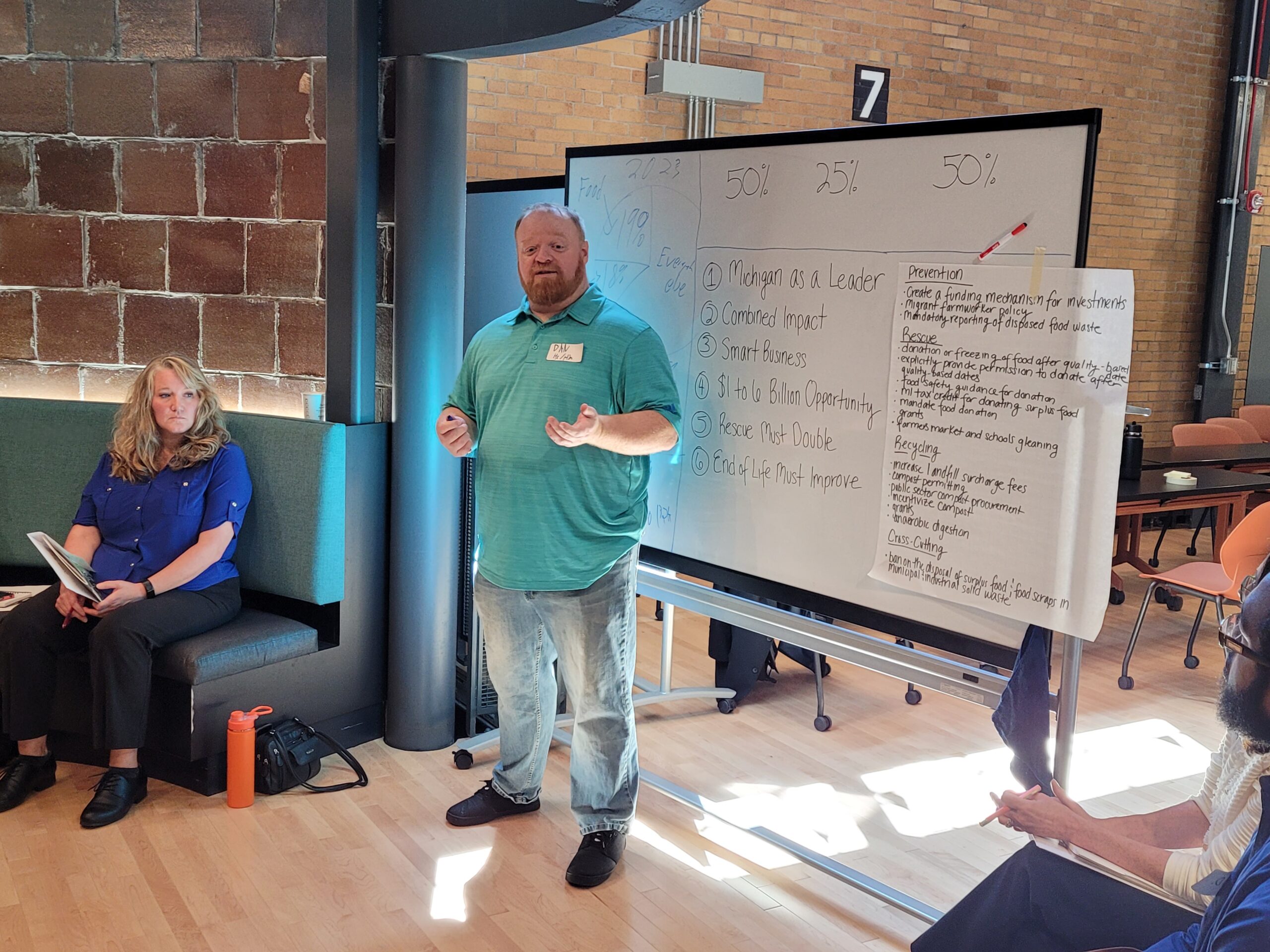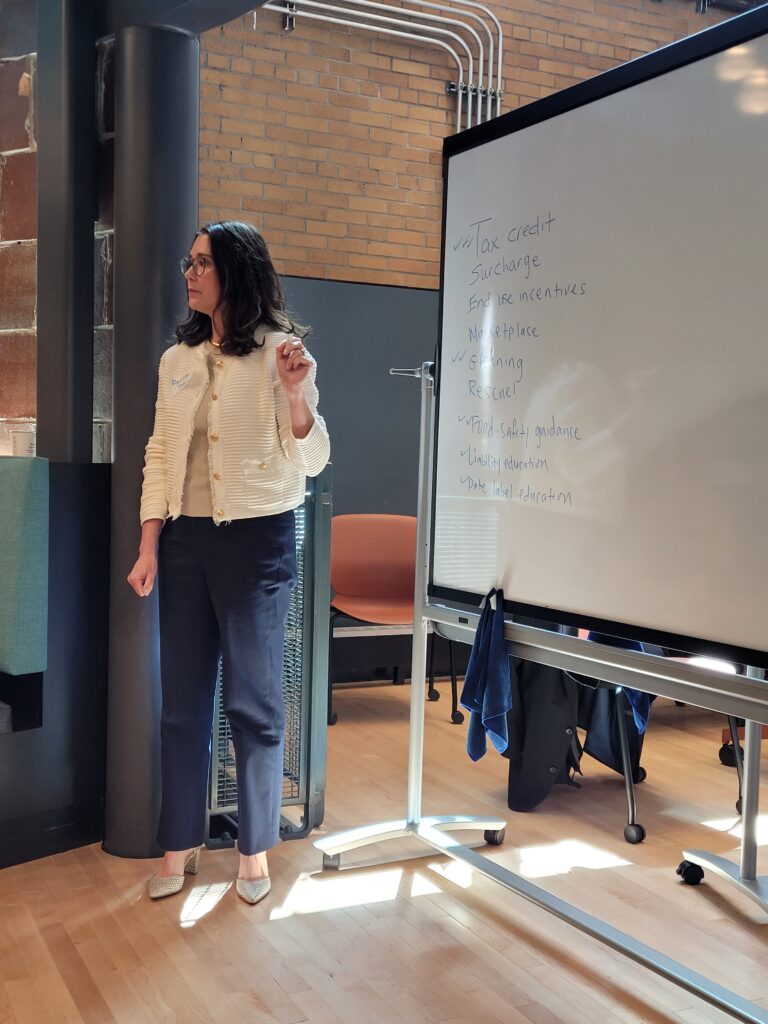
Advocating for Food Loss and Waste Reduction through Michigan Good Food Charter
August 5, 2024
Michigan Sustainable Business Forum (MiSBF) facilitated a roundtable discussion on the Michigan Food Waste Roadmap at the inaugural Michigan Food Good Charter Policy Action Forum on June 10.
The summit was hosted by the Center for Regional Food Systems at Michigan State University and featured full-day planning sessions on a variety of local, state, and federal issues important to achieve the goals of the charter.
Michigan disposes of 1.5 to 2 million tons of food waste through its municipal and commercial waste stream each year, the single largest source of material disposed of in the state’s landfills and waste-to-energy facilities. Food waste is responsible for an estimated 11.1 million metric tons of carbon dioxide equivalent emissions (MmtCO2e) and $11.9 billion in lost revenue in the state. The Forum led a coalition of stakeholders on the development of the Michigan Food Waste Roadmap, published this past spring in collaboration with Michigan Department of Environment, Great Lakes and Energy, and Make Food Not Waste. More information on the Roadmap can be found here.
The Michigan Good Food Charter includes a commitment to “Invest in and support food recovery and food waste reduction practices throughout the value chain and among consumers” as one of its recommended actions. The Roadmap recommendations are comprehensive but narrowly focused and without a platform for implementation. The Policy Action Forum is one of several venues the Forum is using to refine interests and develop an actionable plan to advance necessary policy improvements.

The roundtable focused on the following outcomes:
- Have a detailed understanding of the breadth and depth of food loss and waste reduction in Michigan
- Be prepared to participate in climate and materials management planning opportunities in support of organics recycling infrastructure
- Have an understanding of policy opportunities to improve the supply of donated products in the charitable food system
- Support the development of a policy platform to reduce food loss and waste in Michigan.
In the morning session, MiSBF Executive Director Daniel Schoonmaker provided an introduction to food loss and waste in Michigan, key Roadmap findings, and template recommendations based on the Roadmap and benchmark policy from other states. He was joined by Danielle Todd, executive director of Make Food Not Waste, to discuss a potential policy platform, action planning, and the need for a coalition to own the platform.
Although there was not sufficient time to develop a fully realized plan, the 21 delegates identified a need for action and identified at least limited action steps for the following issues:
- Establish a tax credit for the donation of food in Michigan
- Incentives for end-use solutions and market development
- Education across all scales, but especially for donation liability, date labels, and related food safety guidance
- Support for increased gleaning food rescue
- Establish a marketplace to facilitate the donation or sale of surplus food
- Increase landfill surcharge fees and/or establish mandates that incentivize the diversion of food waste materials from landfills
Generally agreed as a key opportunity to improve food rescue, the roundtable discussed at length how a Michigan credit could address the faults of the current federal incentive, and initial stakeholder considerations. There was also general consensus that the state should incentivize the adoption of organic recycling and upcycling solutions, especially commercial composting service and infrastructure, perhaps including such activity in tax credit proposals.
Representatives from EGLE and Michigan Department of Health and Human Services provided insights into inter-departmental discussions on Roadmap recommendations, receiving initial feedback on proposals that could be introduced to stakeholders in the coming months.
Further, the distribution of funds that would be generated by a surcharge on landfill receipts, such as the Whitmer administration’s recent proposal or a hypothetical program focused on food waste. There was strong support among delegates to advocate that these resources be used to advance landfill diversion efforts, including food loss and waste prevention, as opposed to other potential uses.
The 2024 Policy Action Forum will be wrapping up its work on August 13 in a virtual session to review outcomes.
The Forum is currently inviting business and institutional stakeholders to participate in the development of a coalition to advance food loss and waste prevention in Michigan through improved business practices and public policy. Learn more here.
